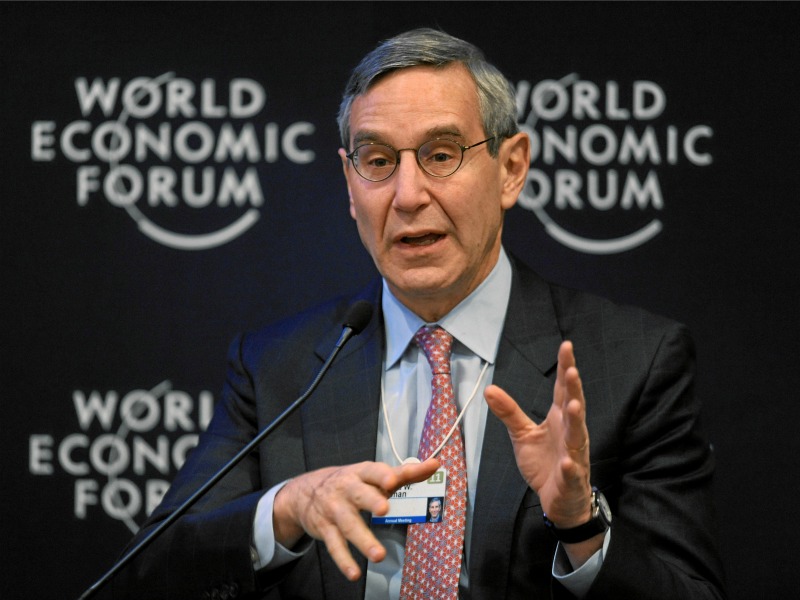Arun Sudhaman 03 Feb 2021 // 4:15PM GMT

NEW YORK — Edelman has reported a 5.7% revenue decline in 2020, with a second-half rebound helping reported fee income recover to $840m after second quarter revenues plunged by 14% as Covid-19 took hold.
While the world's biggest PR firm saw revenue drop from $892m in 2019, CEO Richard Edelman hailed a "V-shaped recovery" that has seen fee income grow year-over-year in two of the past three months. The earnings report is likely to be keenly observed by a PR industry that is seeking continued evidence of its resilience in the wake of the Covid-19 pandemic.
Edelman's international operations bore the brunt of the decline, with Asia-Pacific down 9.6% on a like-for-like basis to $96m, and EMEA down 8.4% to $170m. The firm's US operation dropped 4.2% to $531m, and now accounts for almost two-thirds (63%) of global Edelman revenue.
2020, of course, brought a unique set of challenges, scuppering the firm's original forecast of 4-5% growth. Edelman was one of a number of major PR firms to make redundancies, laying off 390 employees in June despite Richard Edelman's earlier promise of zero job losses. The firm restored salaries and restarted investment later in the year, in a reflection of the ensuing rebound.
"I'm not declaring victory because there is still market uncertainty," Edelman told PRovoke Media. "But we are turning from defence to offence."
In particular, Edelman will pay a 5% bonus to its three lowest staff levels, and is also nearly doubling (to 20%) the number of shares that are held by more than 100 non-family members. "This strong recovery is due to the fortitude and courage of the people and they deserve to be rewarded that way," he said. "We've really fought back."
The firm also expects to re-enter the acquisition market, particularly in emerging markets and in public affairs, and is planning an incremental series of more than 200 hires across creative, planning, data, public affairs, content development, financial relations and healthcare.
Those target priorities reflect the positives for Edelman from a challenging year. While travel and tourism, energy and QSR all saw significant declines in spend, healthcare was up by 9.5%, making it Edelman's biggest sector alongside technology. Other growth areas included financial comms (+22%) and brand marketing (+9%), the latter of which also was influenced by the upturn in consumer healthcare.
"Our biggest clients were flat for the calendar year," said Edelman. "That's amazing — whatever cuts we had, we made back with growth in Unilever and the healthcare business, such as Lilly, AstraZeneca and J&J."
In terms of clients, major wins included Astellas in LatAm, GIZ in Asia-Pacific, Clif Bar by Edible US, Nutrien in Canada, New York Presbyterian Hospital, Primark in the UK and John Deere. And, despite the challenges the firm has faced in terms of transformation, Edelman believes its brand marketing growth is evidence that the strategy is working.
"I think we got a bigger share of the pie," he said. "I feel really good that we are showing the power of our creative investment across the world."
Major account losses included Samsung and HP, both of which shifted to agencies that are more focused on advertising and digital content. Edelman revealed that the firm will soon be launching a content studio, "directly as a result of those losses."
"It was deeply painful," he said. "We intend to fight hard in that segment and we intend to win. We shouldn't cede that ground to Me & Mrs Jones and S4. We'll have a different take on it than they will."
In geographic terms, Edelman admitted that the firm's relative decline in developing markets is a troubling factor. Over the past four years, Edelman's earnings in this segment (which includes China and India) have dropped from 12% to 9% of global revenue, while the US and UK now account for a combined 70% of its fee income.
"We intend to double down through acquisitions and hires," he said. "It's great to be number one in the US and UK, but we intend to fight forward in developing markets."
Edelman pointed to Africa as "the great success story", up 13.5% in 2020, while other growth markets included New York, LA, Brussels, Amsterdam, Hong Kong, Southeast Asia, Indonesia and Malaysia. Canada, China and Germany were much harder hit, thanks to a slowdown in spending from both domestic and MNC clients.
Edelman added that the firm remains "deeply committed" to its DEI goals, which aim to improve overall workforce diversity from 27% to 30% by 2022. And he noted that the firm's Trust Barometer research and racial justice task force helped spur considerable client activity in the second half of 2020.
After outperforming its publicly-traded peers throughout the first half of the decade, the giant independent has seen its growth stalled over the past four years, having grown by 1.7% in 2016 and 2.1% in 2017, before declining by 1.1% in 2018 and growing 2.1% in 2019.
And, while Edelman characterised the outlook for the first half of 2021 as "quite murky", he added that he is "confident like hell about this coming year."
"Vaccine hesitation is a real problem, particularly in the US but elsewhere as well," he noted. "I don't think there's going to be a recovery in travel and tourism, nor do I think there will be a huge jump in energy. The sectors that will do well are health, tech, CPG, financial and services."
"Edelman always springs out of recessions strong — we did in 2001 and 2008, and we plan to do it in 2021," added the Edelman CEO. "We are determined to build the communications firm of the future."


































.jpg)




.tmb-135x100.jpg)












